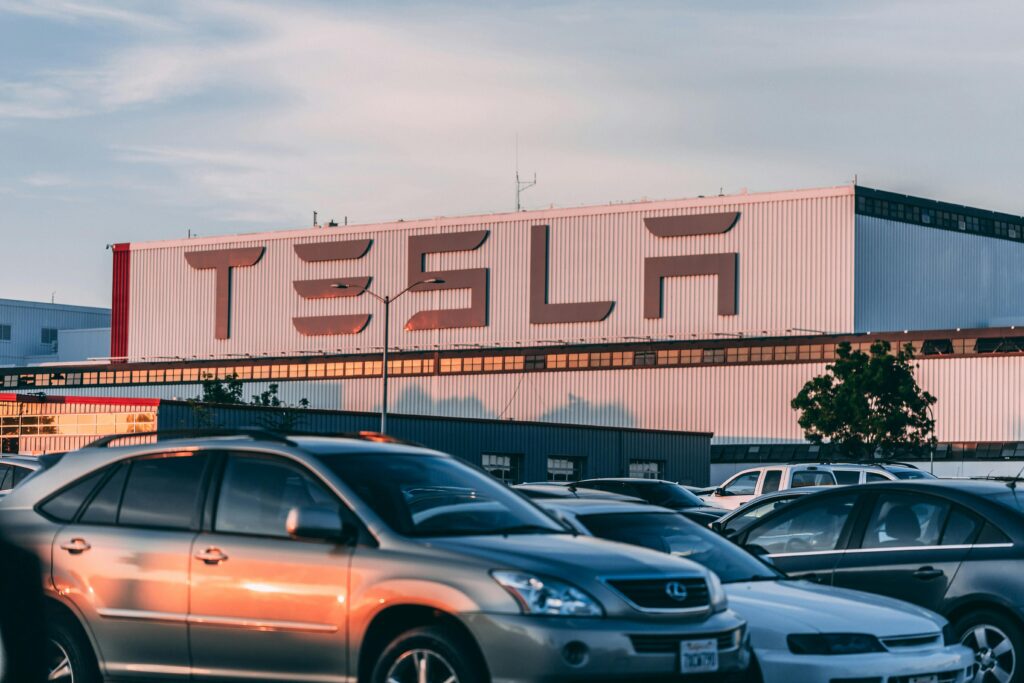
Tesla Motors, now simply known as Tesla, has revolutionized the automotive industry with its electric vehicles (EVs) and innovative approach to marketing. In the United States, Tesla has built a strong brand presence through various marketing strategies:
- Product Innovation: Tesla’s EVs offer cutting-edge technology, long-range capabilities, and sleek designs. The company’s focus on innovation has attracted tech-savvy consumers and environmental enthusiasts alike.
- Word-of-Mouth Marketing: Tesla relies heavily on word-of-mouth marketing. Satisfied customers often become brand advocates, sharing their experiences with friends, family, and on social media platforms.
- Digital Marketing: Tesla utilizes digital platforms extensively for marketing. Their strong presence on social media, including Twitter, Instagram, and YouTube, allows them to engage directly with consumers and showcase their products and advancements.
- Direct Sales Model: Unlike traditional automakers, Tesla sells its vehicles directly to consumers through company-owned stores and its website. This direct-to-consumer approach bypasses the traditional dealership model, offering a unique buying experience.
- Experiential Marketing: Tesla focuses on providing potential customers with hands-on experiences. Test drives, pop-up events, and showroom displays allow consumers to interact with Tesla vehicles and learn about their features firsthand.
- Brand Image: Tesla has cultivated a brand image centered around sustainability, innovation, and luxury. This image appeals to environmentally conscious consumers and those seeking high-performance vehicles.
- Community Engagement: Tesla fosters a sense of community among its customers through events, forums, and owner clubs. This community engagement builds loyalty and encourages brand advocacy.
- Media Coverage: Tesla’s groundbreaking technology and charismatic CEO, Elon Musk, often attract media attention. Positive coverage in both mainstream and niche media outlets helps raise awareness and generate interest in the brand.
Despite its unconventional approach to marketing and sales, Tesla has managed to establish itself as a leading player in the automotive industry, particularly in the United States. Through a combination of innovative products, digital marketing strategies, and a strong brand image, Tesla continues to expand its market share and influence.

Tesla’s business model is built upon innovation, sustainability, and disruption. At the core of its success lies its commitment to electric vehicles (EVs), renewable energy, and cutting-edge technology. The company’s flagship product, the Tesla electric car, has garnered widespread acclaim for its performance, design, and environmental consciousness.
One of Tesla’s key strengths is its relentless focus on research and development. The company invests heavily in advancing battery technology, a critical component of electric vehicles. Through its Gigafactories, Tesla produces its own batteries, enabling vertical integration and cost efficiencies. This strategic move not only secures the supply chain but also positions Tesla as a leader in battery innovation.
Moreover, Tesla’s vehicles are not just cars; they are sophisticated pieces of technology on wheels. Equipped with autonomous driving capabilities, over-the-air software updates, and advanced safety features, Tesla cars represent the future of transportation. The Autopilot feature, for instance, is a testament to Tesla’s commitment to innovation, paving the way for self-driving cars.
Beyond automobiles, Tesla has diversified its business portfolio. The company’s energy division offers solar panels, solar roofs, and energy storage solutions through products like the Powerwall and Powerpack. By harnessing solar energy and storing it efficiently, Tesla aims to revolutionize the way we power our homes and businesses, reducing dependence on fossil fuels.
Tesla’s direct-to-consumer sales model is another disruptive force in the automotive industry. By bypassing traditional dealerships, Tesla streamlines the purchasing process, providing a seamless and personalized experience for customers. This approach not only enhances customer satisfaction but also enables Tesla to maintain control over its brand image and pricing strategy.
Despite its groundbreaking innovations, Tesla faces several challenges. The scalability of production, supply chain disruptions, and regulatory hurdles are constant concerns for the company. Moreover, competition in the EV market is intensifying, with traditional automakers and new entrants vying for market share. However, Tesla’s first-mover advantage, brand loyalty, and technological prowess position it favorably in this evolving landscape.
Looking ahead, the future of Tesla Motors appears promising. With plans to expand its product lineup, enter new markets, and ramp up production, Tesla is poised for continued growth and influence. As society increasingly prioritizes sustainability and technology, Tesla’s vision of a world powered by clean energy seems more attainable than ever. In the journey towards a greener, smarter future, Tesla Motors stands at the forefront, driving change one electric mile at a time.